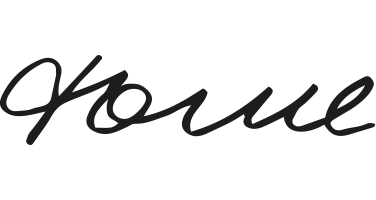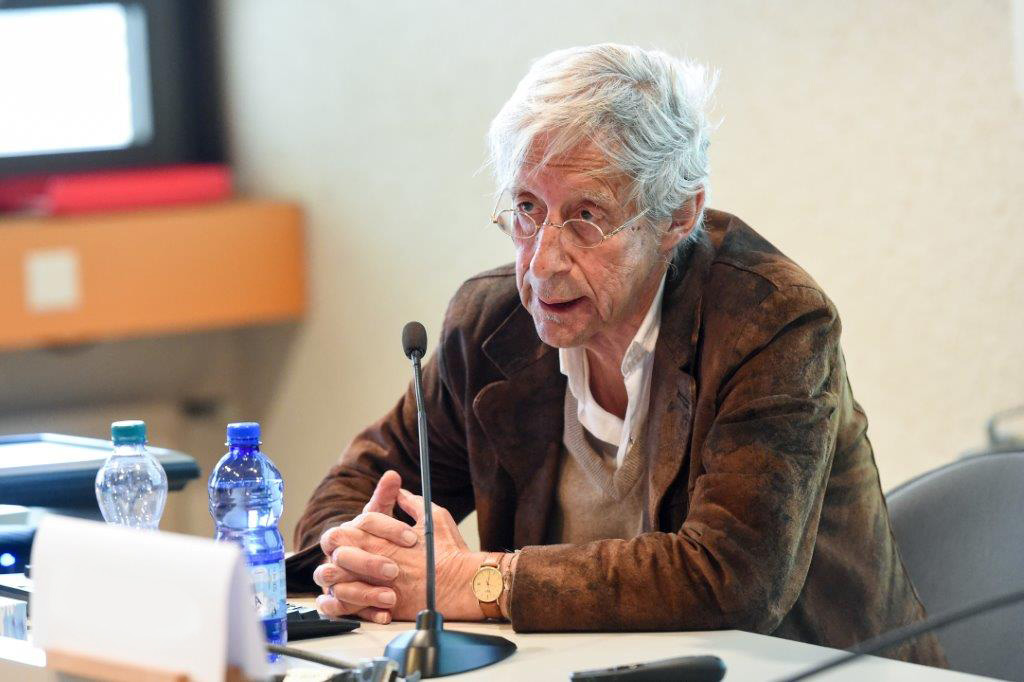Gianfranco Domenighetti as academic person
A proof of Gianfranco Domenighetti’s great versatility was undoubtedly his ability to perform different professional roles and to easily move from one role to the other. Domenighetti undeniably carried out the various tasks he took on in his career with intelligence and dedication, but he was most proud of his position as university lecturer.
He had to cross the threshold of being 50 years old to acquire, in 1993, the academic degree of Doctor of Sociology at the University of Lausanne. At that time he had already published quite a lot and for Domenighetti were opened wide the doors of a world that makes freedom of expression and independence of thought its raison d’être, in other words two elements that are congenial to Domenighetti’s character but not always allowed to an executive official. As a lecturer and researcher, Gianfranco could undoubtedly think, write and teach with an autonomy that would never have been granted to him if he had ‘simply’ remained an executive at the cantonal public administration.
He started his university lecturer activity as a chargé de cours at the University of Geneva in 1993, which was consolidated with two other stable (part-time) positions. The first (in chronological order), in addition to the one already mentioned at the University of Geneva, was offered to him by the Institut d’économie et management de la santé at the University of Lausanne, headed by Prof. Alberto Holly. There Domenighetti took on the role of visiting professor from 1997 to 2011 and with his course “Economie et politiques de la santé” he contributed to train an entire generation of Swiss health managers (primarily French and Italian-speaking). The second opportunity turned up to him in 2000, when the Faculty of Communication Sciences of the Università della Svizzera italiana appointed him as full professor. Until 2012 Domenighetti remained affiliated to the Institute of Institutional Communication directed by Edo Poglia. In Communication Sciences he taught in particular the course entitled “Institutions of Health Policy”, while in the Faculty of Economics he contributed with his verve to the establishment and development of the Master’s degree in health economics and management. Every two years he held a truly memorable course on “The medicalisation of society and the sustainability of health systems”. He has held numerous invited lectures and seminars at Italian and European universities since the second half of the 1990s, activities that were very rewarding for him and that were abruptly interrupted only following the growing tiredness caused by his deteriorating health condition.
One of Gianfranco’s great merits was his ability to create networks and collaborate with colleagues who, hav-ing technical and methodological skills superior to his own, could help him transform his innovative ideas and brilliant intuitions into rigorous scientific publications. He published and carried out research projects together with the best Italian epidemiologists (in particular Alessandro Liberati, Roberto Grilli and Paolo Vineis) and interacted with almost all the tenors of the discipline that in Switzerland in the 1990s was still called “Social and Preventive Medicine” (in the meantime replaced by the English term “Public Health”). He has published with Felix Gutzwiller (University of Zurich), Fred Paccaud (University of Lausanne), Matthias Egger (University of Bern) and Thomas Pernegger (University of Geneva). In the same way, he also collaborated with the two leading Swiss health economists of the 1990s: Peter Zweifel and Alberto Holly. His relationship with health economics was actually ambivalent. On the one hand his pioneering studies on information asymmetries, supplier-induced demand and the analysis of small-area variation in clinical practices have undoubtedly left a very significant mark in this discipline; on the other hand, Domenighetti was also able to distance himself from this disciplinary field as soon as the excess of methodological sophistication as an end in itself and subordination to the reductionism of mainstream microeconomic modelling meant in fact moving dangerously away from reality.
For a person who worked only part-time in the academic world, his scientific production was remarkable and is also supported by those bibliometric indicators that Gianfranco criticized but at the same time went to verify himself, taking pride in it (he reached an enviable H-Index equal to 17). The thematic areas that Domenighetti dealt with in an articulated and extensive way are basically four: (1) the health market, (2) the social determinants of health, prevention and health promotion, (3) health systems in industrialized countries (with particular attention to the dimensions of performance, equity, sustainability and conflicts of interest) and (4) health policy.
His most important original contributions (in terms of scientific impact) were in my opinion the study published in 2003 with Matthias Egger on the perceived benefits of mammographic screening (International Journal of Epidemiology), the 1998 econometric paper with Alberto Holly on the demand of health care and the role of health insurance (European Economic Review), the work on hysterectomies and the consumption of other non-essential surgical interventions by family members of doctors, lawyers, and other professionals, published in 1993 with Felix Gutzwiller and Sebastiano Martinoli as main co-authors (International Journal of Technology Assessment) and the paper published in 1991 on the use of sleeping pills and tranquilizers by doctors compared to the general population (Social Science and Medicine).
The scientific merit Gianfranco was most proud of, however, was another: that of hav-ing been able to link his name to the four main medical journals: New England Journal of Medicine, British Medical Journal, Lancet and JAMA and this despite the fact that, as he himself honestly did not fail to point out, it was mostly just “scientific letters”. In addition to the scientific merit, Domenighetti should certainly be acknowledged for hav-ing been able to reconcile academic publications with a dissemination of his main messages within the population of Ticino (and of Switzerland), creating that “healthy suspicion” with respect to the application of classical economic theories within the health market and the infallibility and rigor of medical science.
Luca Crivelli
Director of the Department of Business Administration, Health and Social Sciences at SUPSI and Deputy Director of the Swiss School of Public Health.

